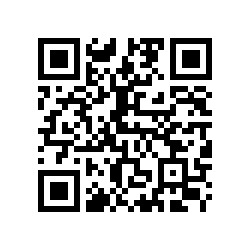Software Development for Education Infrastructure Management: Extreme Programming-Based Approach
(1) Universitas Katolik Indonesia Atma Jaya, Indonesia
(*) Corresponding Author
Abstract
Full Text:
PDFReferences
D. Susrianto, A. As’ad, And J. Jamrizal, “Hubungan Suprastruktur, Infrastuktur Pendidikan Terhadap Polesosbud,” Al-Liqo: Jurnal Pendidikan Islam, Vol. 8, No. 1, Pp. 1–19, Jun. 2023, Doi: 10.46963/Alliqo.V8i1.1121.
I. Maula Et Al., “Pendidikan Untuk Pemerataan Pembangunan: Memperjuangkan Hak Semua Anak,” Journal On Education, Vol. 05, No. 04, Pp. 13153–13165, 2023.
T. Rosalina Noor, “International Muktamar For Arabic Language And Islamic Studies Evaluasi Desain Infrastruktur Pendidikan Ramah Anak (Sebuah Analisis Psikologi Lingkungan),” 2023. [Online]. Available: Http://Jatimprov.Go.Id
R. Sira Torsina Sihombing Et Al., “Pemerataan Pendidikan: Studi Kasus 34 Provinsi Di Indonesia,” 2022.
M. Widodo, “Exploring The Role Of Educational Technology In Promoting Civic Education In Indonesia: Current State, Challenges, And Opportunities,” 2023. [Online]. Available: Https://Creativecommons.Org/Licenses/By/4.0/
H. Stai Rasyidiyah Khalidiyah Amuntai Kalimantan Selatan And S. Stai Rasyidiyah Khalidiyah Amuntai Kalimantan Selatan, “National Standards Of Education In Contents Standards And Education Process Standards In Indonesia,” 2022.
S. H. Halili, “Technological Advancements In Education 4.0,” The Online Journal Of Distance Education And E-Learning, Vol. 7, No. 1, Pp. 63–69, 2019, [Online]. Available: Www.Tojdel.Net
Anealka Aziz, “Education 4.0 Made Simple: Ideas For Teaching,” International Journal Of Education And Literacy Studies, Vol. 6, No. 3, P. 92, 2018, [Online]. Available: Https://Journals.Aiac.Org.Au/Index.Php/Ijels/Article/View/4616
V. Puncreobutr, “Education 4.0: New Challenge Of Learning,” Journal Of Humanities And Social Sciences, Vol. 2, No. 2, Pp. 92–97, 2016, [Online]. Available: Http://Scopuseu.Com/Scopus/Index.Php/Hum-Se-Sc/Article/View/188
V. Khatibi, A. Keramati, And F. Shirazi, “Deployment Of A Business Intelligence Model To Evaluate Iranian National Higher Education,” Social Sciences & Humanities Open, Vol. 2, No. 1, P. 100056, 2020, Doi: 10.1016/J.Ssaho.2020.100056.
D. J. C. Sihombing, “Academic Data Warehouse Modeling In Higher Education Using Nine-Step Design Methodology,” Journal Of Information Systems And Informatics, Vol. 4, No. 4, 2022, Doi: 10.51519/Journalisi.V4i4.399.
M. Hidayat, R. W. A. Rozak, K. A. Hakam, M. D. Kembara, And M. Parhan, “Character Education In Indonesia: How Is It Internalized And Implemented In Virtual Learning?,” Cakrawala Pendidikan, Vol. 41, No. 1, Pp. 186–198, Feb. 2022, Doi: 10.21831/Cp.V41i1.45920.
B. Karsono, R. Suraji, And I. Sastrodiharjo, “The Influence Of Leadership Spirituality To Improving The Quality Of Higher Education In Indonesia,” International Journal Of Social Sciences And Humanities Invention, Vol. 9, No. 02, Pp. 6832–6841, Feb. 2022, Doi: 10.18535/Ijsshi/V9i02.06.
K. Wang, B. Li, T. Tian, N. Zakuan, And P. Rani, “Evaluate The Drivers For Digital Transformation In Higher Education Institutions In The Era Of Industry 4.0 Based On Decision-Making Method,” Journal Of Innovation And Knowledge, Vol. 8, No. 3, Jul. 2023, Doi: 10.1016/J.Jik.2023.100364.
A. Selamat, “Higher Education 4 . 0 : Current Status And Readiness In Meeting The Fourth Industrial Revolution Challenges Our Team Members • Datin Paduka Ir . Dr . Siti Hamisah Tapsir • Assoc . Prof . Dr Marlia Puteh • Prof . Dr Rose Alinda Alias,” No. August, 2017.
M. Andarwati, U. Prajogo, And G. Swalaganata, “Ahp Learning Website Development With The Rad Method For Deaf Student,” In 2022 8th International Conference On Education And Technology (Icet), 2022, Pp. 159–164. Doi: 10.1109/Icet56879.2022.9990691.
R. Garg, R. Kumar, And S. Garg, “Madm-Based Parametric Selection And Ranking Of E-Learning Websites Using Fuzzy Copras,” Ieee Transactions On Education, Vol. 62, No. 1, Pp. 11–18, 2019, Doi: 10.1109/Te.2018.2814611.
J. L. R. Muñoz Et Al., “Systematic Review Of Adaptive Learning Technology For Learning In Higher Education,” Eurasian Journal Of Educational Research, Vol. 2022, No. 98, Pp. 221–233, 2022, Doi: 10.14689/Ejer.2022.98.014.
T. Dingsøyr, S. Nerur, V. Balijepally, And N. B. Moe, “A Decade Of Agile Methodologies: Towards Explaining Agile Software Development,” Journal Of Systems And Software, Vol. 85, No. 6. 2012. Doi: 10.1016/J.Jss.2012.02.033.
P. Serrador And J. K. Pinto, “Does Agile Work? - A Quantitative Analysis Of Agile Project Success,” International Journal Of Project Management, Vol. 33, No. 5, 2015, Doi: 10.1016/J.Ijproman.2015.01.006.
R. Santos Et Al., “A Comparative Analysis Of Agile Teamwork Quality Instruments In Agile Software Development: A Qualitative Approach”, Doi: 10.18293/Dmsviva2023-217.
S. Al-Saqqa, S. Sawalha, And H. Abdelnabi, “Agile Software Development: Methodologies And Trends,” International Journal Of Interactive Mobile Technologies, Vol. 14, No. 11, 2020, Doi: 10.3991/Ijim.V14i11.13269.
A. Akhtar, B. Bakhtawar, And S. Akhtar, “Extreme Programming Vs Scrum: A Comparison Of Agile Models,” International Journal Of Technology, Innovation And Management (Ijtim), Vol. 2, P. 2022, Doi: 10.54489/Ijtim.V2i1.77.
G. Gutierrez, J. Garzas, M. T. G. De Lena, And J. M. Moguerza, “Self-Managing: An Empirical Study Of The Practice In Agile Teams,” Ieee Softw, Vol. 36, No. 1, Pp. 23–27, Jan. 2019, Doi: 10.1109/Ms.2018.2874324.
A. Hinderks, F. J. Domínguez Mayo, J. Thomaschewski, And M. J. Escalona, “Approaches To Manage The User Experience Process In Agile Software Development: A Systematic Literature Review,” Inf Softw Technol, Vol. 150, Oct. 2022, Doi: 10.1016/J.Infsof.2022.106957.
J. S. Persson, A. Bruun, M. K. Lárusdóttir, And P. A. Nielsen, “Agile Software Development And Ux Design: A Case Study Of Integration By Mutual Adjustment,” Inf Softw Technol, Vol. 152, Dec. 2022, Doi: 10.1016/J.Infsof.2022.107059.
O. Kolisnichenko, M. Kolomytsev, And S. Nosok, “Software Security Risk Management In Devops Methodology.” [Online]. Available: Https://Quality-Lab.Ru/Blog/
F. Almeida, J. Simões, And S. Lopes, “Exploring The Benefits Of Combining Devops And Agile,” Future Internet, Vol. 14, No. 2, Feb. 2022, Doi: 10.3390/Fi14020063.
E. P. Enoiu, D. Truscan, A. Sadovykh, And W. Mallouli, “Veridevops Software Methodology: Security Verification And Validation For Devops Practices,” In Acm International Conference Proceeding Series, Association For Computing Machinery, Aug. 2023. Doi: 10.1145/3600160.3605054.
M. S. Khan, A. W. Khan, F. Khan, M. A. Khan, And T. K. Whangbo, “Critical Challenges To Adopt Devops Culture In Software Organizations: A Systematic Review,” Ieee Access, Vol. 10, Pp. 14339–14349, 2022, Doi: 10.1109/Access.2022.3145970.
DOI: https://doi.org/10.30645/kesatria.v5i1.291
DOI (PDF): https://doi.org/10.30645/kesatria.v5i1.291.g288
Refbacks
- There are currently no refbacks.
Published Papers Indexed/Abstracted By:














